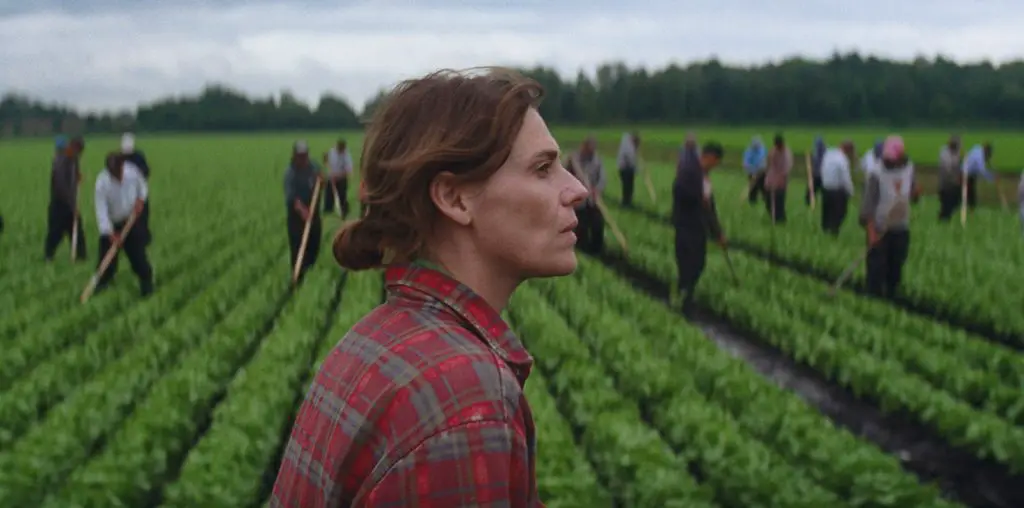
In Kiss Kiss, a group of no-nonsense exotic dancers decides to cash in on a $500 gift card to a vineyard/animal preserve that the newbie of the group, Tia, received as a tip. The crew is taken on a private tour of the vineyard by two affable hunks, and that evening, after a day of chugging wine and feeding giraffes (as one does), they end up partying after hours with their guides. The debauched proceedings turn sinister when one of their hosts slips the women a drugged bottle of wine (said to be from Afghanistan no less). Upon waking they find themselves in a situation that is the warp and woof of Jean Claude Van Damme’s existence. The four women are forced to be test subjects in a rogue government experiment, and are injected with a super soldier serum and must fight one another…to the death. Honestly, pretty cool.

“…exotic dancers being turned into chemically modified killing machines and forced into death matches…”
The concept of exotic dancers being turned into chemically modified killing machines and forced into death matches is admittedly a novel one. The stylistic confusion of Kiss Kiss, however, detracts from what could have been a fairly straightforward, gritty affair. King’s penchant for John Wick-ish lighting and meaningless montage come off as what they clearly are: padding. Even with a variety of tacky formal digressions filling its running time, Kiss Kiss still seems to stall out. When the viewer finally gets to the action, it’s much too little, too late. The highly anticipated scenes of mortal combat are sloppy and dull. If the film’s larger drama was intended to compensate for this shortcoming, it’s simply not compelling enough to do so.
Robert Wagner (not the one you’re thinking of) puts in a strong performance as the sadistic puppet master behind it all. The rest of the cast oscillates between pitching too high (their terror can resemble that of seasonal haunted house volunteers) or simply conveying what can be best described as generalized distress. The results leave the second half of the film emotionally and narratively unclear.

“…detracts from what could have been a fairly straightforward, gritty affair.“
There are ample shots of the female anatomy clothed in a variety of elastic materials, and even a brief workout montage that is maybe the film’s most inspired sequence. The sexuality that undergirds Kiss Kissh is neither erotic nor sleazy (enough). It instead brings to mind the male juvenalia of the early-2000s that gave us the lecherous, “dude, check her out!” conservatism of Maxim magazine.
Kiss Kiss, like many exploitation and exploitation inspired films, exists somewhere between an extremely high concept and the reality of an extremely limited production. Execution in these films is where the rubber meets the road, and the best results can often be visionary or disastrous (and both have their merits). Unfortunately, King’s film falls into the dangerous middle ground between good and “so bad it’s good,” dropping its anchor into tepid, merely serviceable waters. At its best, Kiss Kiss is one part late-era John Carpenter diluted into ten parts sexy fitness site photoshoot, and in that sense, it’s guilty fun. In the end, though, the film’s style is muddled, and the promise of its trashy premise is left somewhat unfulfilled.

Kiss Kiss (2019) Written and Directed by Dallas King. Starring Natascha Hopkins, Robert Wagner, Nathalia Castellon, Julia Farino, Nick Denbeigh, Thai Edwards, Kiersten Hall.
6 out of 10 stars


